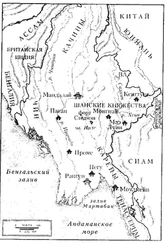Lucius listened impatiently. It wasn’t patriotism, he thought. Morphine sulfate, mouse-toothed forceps, chisel —that was why he was going. Feuermann, on the front already, had written about a giant magnet for extracting embedded shrapnel. In Vienna, the senior surgeons would take all the best patients for themselves—they, too, were awaiting the complex wounds that war would bring. At best, he would be given abscesses or dilation of urethral strictures secondary to gonorrhea. More likely he would be assigned to examining recruits. No: Lucius, first in his Rigorosum, would not spend the war telling eager volunteers to turn their heads and cough.
Zimmer called upon the rector, and the rector offered Lucius a position as Second-Level Assistant at the Empress Elisabeth Hospital for the Rehabilitation of the Very Injured.
Second-Level Assistant! Lucius didn’t bother to respond.
He took the train a half day south to Graz, where his family wasn’t known. There he presented himself again at the recruiting office, giving the address of his boardinghouse. In the previous weeks, the Russian army had advanced into Galicia, the strip of Polish-speaking Austrian territory that descended the northern flank of the Carpathians. With Germany tied up in the west and north, Austria was forced to divert the Second Army from Serbia. To his great fortune, the Graz garrison was being transferred soon. For the entire Second Army of seventy-five thousand men, they had scarcely ninety doctors, forty of whom were medical students from the university in Graz.
He did the mathematics in his head.
His application was accepted instantly. The recruiter spent more time asking Lucius about how well he spoke Polish than questioning his medical training. Waving his hand vaguely toward the north, he said, “No one can understand each other out there. They give our officers Territorials to command, and the men don’t understand a word. How can you fight a war like this?”
Then he caught himself, and shouted, “God bless the Emperor!” but this seemed to make his blasphemy only worse.
The knob of the seal was burnished down to the red wood, and the stamp was barely legible. Thump, it went, on seven papers, seven times. In his life, Lucius had touched four living patients in addition to the old man he had liberated from earwax: three men and one blind old woman, the last who, truth be told, had clawed desperately at anyone nearby.
In Kraków, in his first communication home, he asked his mother to send his books.
Little did he know, but it would be nearly six months before he reached the front.
In Kraków, he was assigned to a field hospital near Rawa Ruska, but the day he was to leave, he was told that Rawa Ruska had fallen, and instead he was to go to Stanislau. Then Stanislau fell, and he was assigned to the Lemberg garrison. But Lemberg fell, too, as did Turka and Tarnów. The Austrian line was disintegrating, pushed back against the foothills; it appeared as if Kraków itself might soon be taken. From the train stations, on the wide roads that led out of the city, regiment after regiment departed for the east. Despite the losses, it was impossible not to feel awe at the immensity of the Empire: its spangled cavalry and multitudes on foot, its balloons and motorcars, its bicyclists, their chains clanking as they pedaled out over the rutted roads, rims flashing in the sun.
To think how these men need us, he wrote to Feuermann, hopefully, that they cannot live without our hands!
Still he waited for his assignment, pacing the city, his officer’s saber slapping impatiently against his boots. The boulevard chestnuts turned gold, then red. Day after day he went to the hospital, trying to assist in surgeries. But medical responsibilities in a regiment other than one’s own required a Document M-32, he learned quickly, and the train carrying the paymaster’s batch of Document M-32s supposedly had vanished somewhere between Vienna and Kraków. Fortunately, explained an irritated clerk the fourth time Lucius visited, they had received an extra delivery of N-32s, Regulations Regarding Marching Bands . Would Lucius want one of those?
He would have laughed were he not so frustrated. In the hospital tents, shuffling priests hurried past the orderlies to administer extreme unction, and little women slipped inside to deliver icons to the dying. It seemed as if he were the only one without a purpose. Then, in late October, following yet another reorganization, he was assigned to Boroević’s Third Army, which had just lifted the siege of Przemyśl, by then the sole Austrian holdout on the Galician plain. Again he prepared to leave. He had his tunic pressed, his boots polished, and he neatly folded his woolens to keep his textbooks from getting bumped. But Boroević pulled back into the mountains, and Lucius’s deployment was canceled yet again.
By his fourth reassignment, he’d begun to give up hope. In his billet at the Kraków Natural History Museum, in the Room of Large Mammals, amid skeletons of whales and sea cows, he tried to study. But the surgical textbooks seemed to mock him with their discussions of cancers in the elderly, while the medical texts devoted pages to rest cures for pneumonia, hardly useful for an army on the move.
The army-issued medical manuals were not much help, either. They consisted of:
–five pages on applying whale oil to the inside of boots to prevent abrasions
–ten pages on latrine building
–a chapter on “moral instruction for the soldier who misses the comforts of the wife”
–a glossary for Austrian medical officers attending to the needs of Hungarian soldiers ignorant of German, with such phrases as:
Hazafias magyarok! Mindebben mindannyian együtt vagyunk!
Patriotic Magyars, we are all in this together!
Nem beteg, a baj az a bátorság hiánya!
He is not sick, his disease is no bravery.
Persze hogy viszket Somogyi őrmester, nem kellett volna olyan szoknyapecérnek lenni!
Of course it itches, Sergeant Somogyi, you were out of control.
–a page on abdominal surgery, which concluded, after consideration of the opinions of various world-famous experts and some statistical discussion— abdominal wounds generally exceed 60 percent mortality despite intervention —that abdominal surgery should not be done.
He wrote to his mother again, this time asking her to send textbooks on wound care and basic first-aid techniques.
Briefly, he was appointed to a delousing detail, to prevent outbreaks of typhus among eastern refugees, mostly Jewish families fleeing attacks on their villages. The camp was set up in a cattle market, south of the city. It was miserable. A deep antagonism had developed between the medical personnel and the refugees, the most religious of whom resisted shaving their hair. The camp director was a former headmaster of a primary school, a viperous man, angry that the army was wasting Austrians to defend Poles and Jews. To Lucius, he said he was happy to have the company of another man of science, and in the evenings he liked to lecture him on his theories of heredity and the natural uncleanliness of certain races. Not once did Lucius see the camp director try to explain to his wards why they were rounded up and shorn, their ritual clothes taken from them for steaming. When at last Lucius grew sick with watching sanitary personnel tear off the hats and kaftans, he went alone to one of the rabbis and tried to explain to him why the measures needed to be taken. But the old man wouldn’t listen. He kept repeating how his people were being treated like animals. There had been no cases of typhus yet; why were they the only ones being harassed? Lucius tried to explain the transmission cycle of typhus to him, that it took time for the disease to develop, that rats and fleas were present, and already they had outbreaks in other camps. “What is it caused by?” the man asked, and Lucius had to answer, “We… I mean science… doesn’t know. Something unseen, a bacillus, a virus.”
Читать дальше











